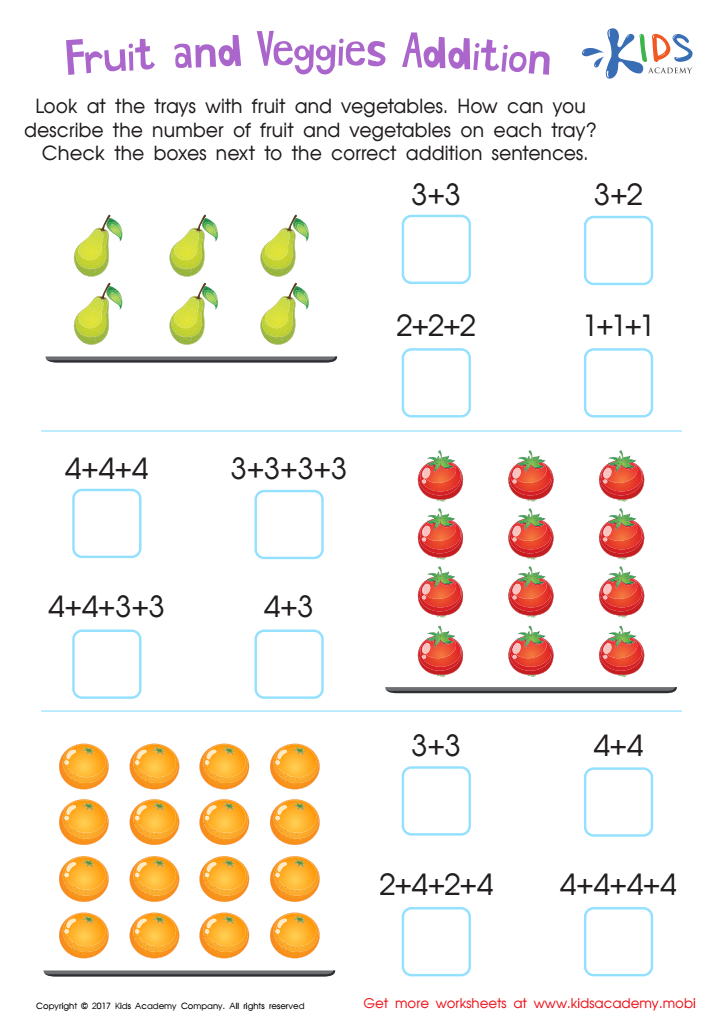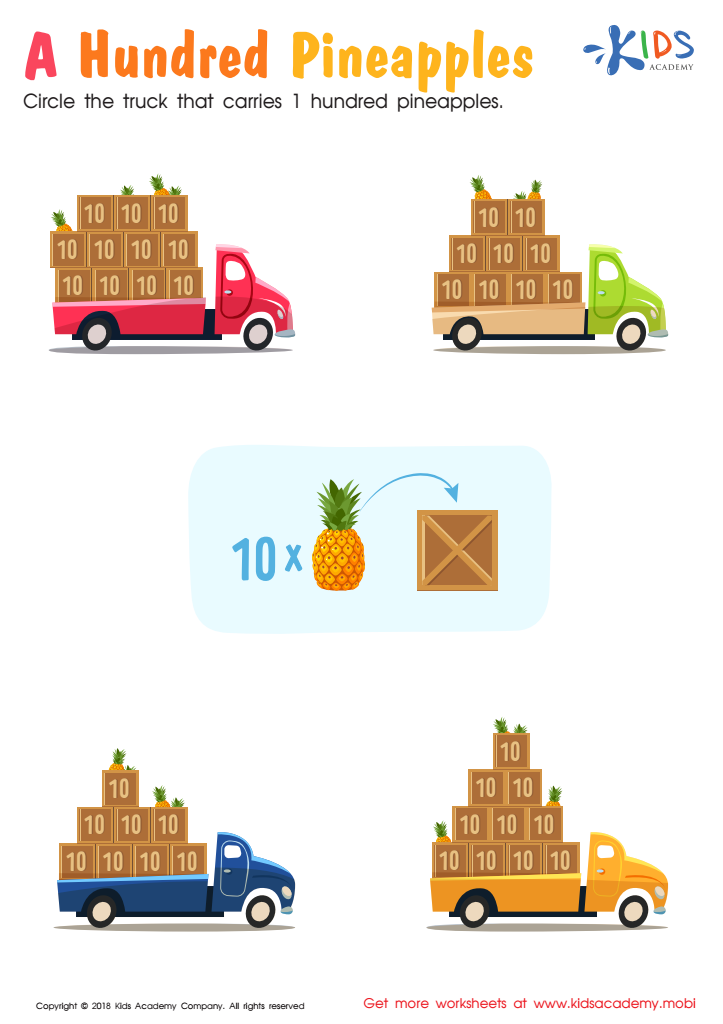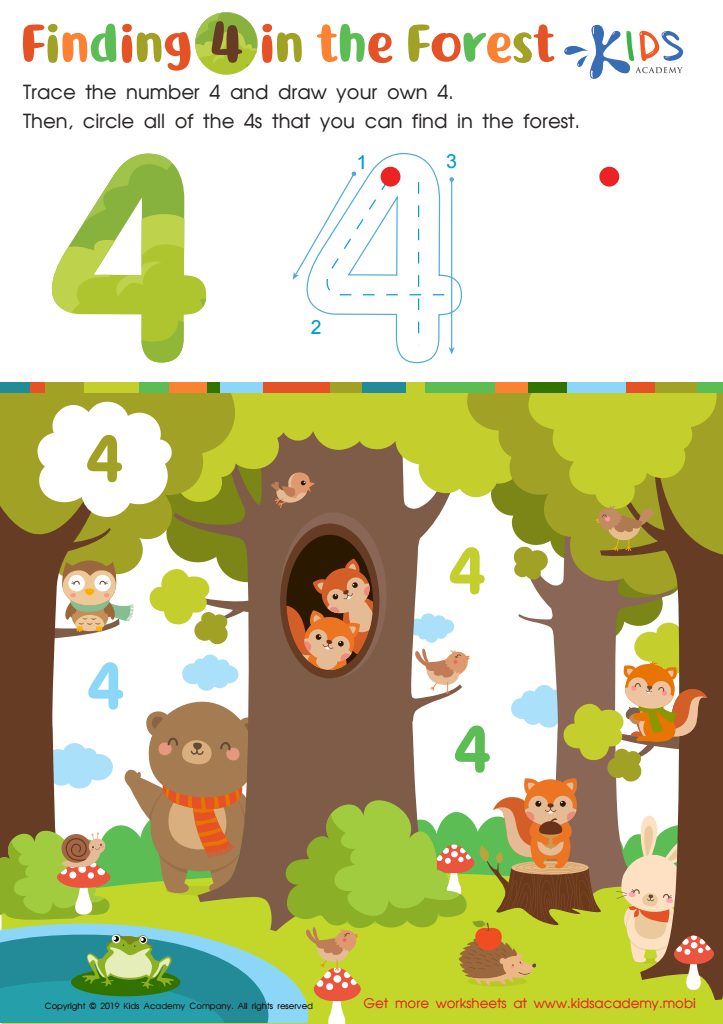Fine motor skills (writing numbers) Numbers Worksheets for Ages 3-7
3 filtered results
-
From - To
Our Numbers Worksheets for ages 3-7 are meticulously designed to strengthen fine motor skills and teach number writing. Perfect for young learners, these engaging activities help children develop hand-eye coordination, pencil control, and the ability to write numbers clearly and confidently. Each worksheet combines fun and educational tasks to make learning enjoyable, providing essential practice for mastering number formation. Tailored for preschool to early elementary students, our worksheets support foundational math skills, setting the stage for future academic success. Discover a world of interactive learning and help your child flourish in their fine motor development and number writing abilities.


Fruit and Veggies Worksheet


A Hundred Pineapples Worksheet


Finding 4 in the Forest Worksheet
Fine motor skills are crucial for children aged 3-7 as they lay the foundation for many critical developmental milestones. These skills involve the coordination of small muscles in the fingers and hands and are essential for tasks such as writing numbers, threading beads, or buttoning clothes. Writing numbers specifically is a tangible way to help children build these skills while integrating learning and everyday functionality.
When children practice writing numbers, they improve hand-eye coordination, grip strength, and dexterity. These abilities are not only vital for academic tasks but also for self-care activities that encourage independence. Additionally, mastering number writing enables smoother transitions to more complex academic requirements, like math and reading, as these often involve flipping through pages, handling pencils precisely, and understanding spatial awareness on paper.
Parents and teachers should prioritize fine motor skill development to set children up for educational success and everyday proficiency. Activities like tracing, drawing, or number games can make the learning process fun and engaging, fostering a positive attitude towards learning. Moreover, strong fine motor skills can boost confidence, as children are more likely to tackle challenging tasks with enthusiasm once they feel competent in basic skills. Early intervention helps prevent future academic difficulties, making early childhood an ideal time for nurturing these foundational abilities.
 Assign to My Students
Assign to My Students
















